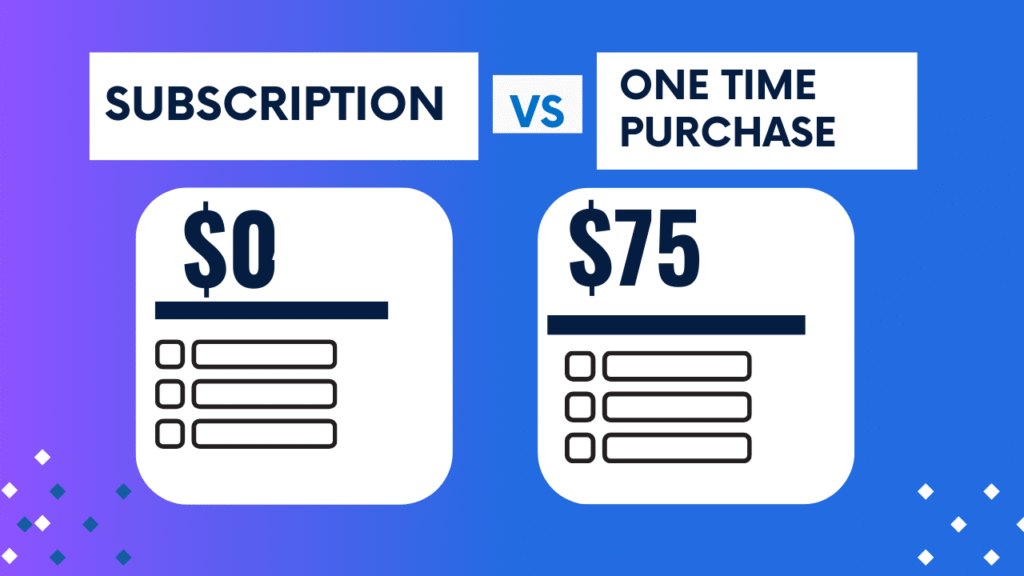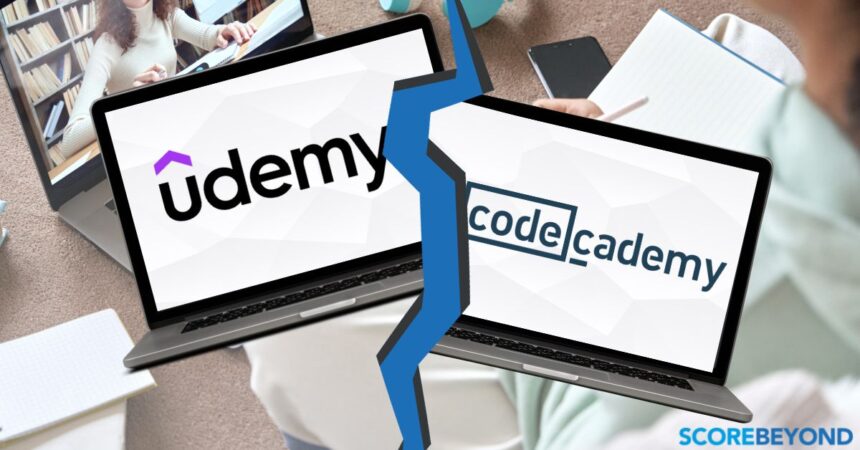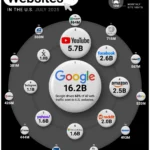The Digital Crossroads: Choosing Your Path to Python Proficiency in a World of Infinite Online Learning Platforms
Let’s be brutally honest. The landscape of online education learning is more crowded and confusing than a Times Square on New Year’s Eve. For the aspiring marketing technologist—the hybrid professional who lives at the exhilarating intersection of data, creativity, and technology—this choice isn’t just academic. It’s strategic. Your ability to automate workflows, analyze customer data, build predictive models, and integrate complex martech stacks hinges on a foundational skill: coding. And in 2024, the lingua franca for this domain is, unequivocally, Python.
The question isn’t whether you should be learning Python. The question is how.
Two giants dominate this conversation: the structured, subscription-based universe of Codecademy and the vast, à la carte marketplace of Udemy. I’ve spent over a decade navigating the treacherous waters of digital marketing and technology, and I’ve trained thousands of professionals. I can tell you with certainty that the wrong choice here doesn’t just cost you money; it costs you time, momentum, and potentially, a career-defining opportunity.
This isn’t just another comparison article. This is a deep, data-driven, and experience-fueled cost-benefit analysis designed specifically for you—the marketer, the analyst, the strategist ready to wield code as a superpower. We’ll dissect these online learning platforms layer by layer, moving beyond surface-level features to uncover the true return on investment for your future in marketing technology.
Why Python is the Non-Negotiable Skill for the Modern Marketing Technologist
Before we dive into the “how,” let’s cement the “why.” You might be wondering why Python, and not another language? The answer lies in its unparalleled utility across the entire marketing value chain.
- Data Analysis & Visualization: Libraries like Pandas, NumPy, and Matplotlib allow you to move beyond the limitations of Excel. You can manipulate million-row customer datasets, create custom dashboards, and uncover insights that are simply invisible with point-and-click tools.
- Marketing Automation: Tired of repetitive tasks? Python scripts can automate email campaign segmentation, social media posting, ad performance reporting, and CRM data hygiene, freeing you up for high-level strategy.
- AI and Machine Learning: This is the holy grail. With libraries like Scikit-learn and TensorFlow, you can build churn prediction models, customer lifetime value calculators, and even rudimentary recommendation engines. This is where you transition from a marketer who uses tools to a technologist who builds them.
- API Integrations: The modern martech stack is a patchwork of tools. Python is the glue. It allows you to connect your CRM (like Salesforce) to your analytics platform (like Google Analytics) to your email tool (like HubSpot), creating a seamless flow of data.
In essence, learning Python is not about becoming a software engineer. It’s about achieving fluency in the language of data and automation, making you exponentially more valuable. The benefits of online learning in this specific skill are immediate and profound.
Setting the Stage: A Primer on the Two Contenders
To understand the battle, you must know the warriors. Let’s briefly introduce our two competitors in the arena of online learning courses.
What is Codecademy? The Structured, Interactive Dojo
Codecademy is a dedicated platform focused exclusively on teaching coding and data science. It operates primarily on a “Pro” subscription model, giving you access to its full catalog of courses, projects, and career paths. Its philosophy is “learn by doing,” with an in-browser coding environment that provides immediate feedback. It’s a walled garden—beautifully curated, meticulously maintained, and self-contained.
Live Daily Information (As of 2024): Codecademy continues to emphasize its “career paths” and AI-assisted learning features, integrating real-time hints and code analysis to simulate a one-on-one tutoring experience.
What is Udemy? The Free Market of Knowledge
Udemy is a massive open marketplace for online learning courses on virtually every topic imaginable, from learning Spanish online to what is machine learning. Instructors from around the world create and publish their courses, which students can purchase individually, often at deep discounts. The quality can vary dramatically from world-class to woefully outdated, placing the burden of selection on the student. It’s the wild, wild west of online education learning—full of opportunity, but requiring a keen eye.
Live Daily Information (As of 2024): Udemy’s marketplace is more competitive than ever, with top instructors constantly updating content. The platform is pushing its “Udemy Business” corporate learning solution, but for individuals, the model remains course-by-course purchase.
The Grand Arena: A Head-to-Head Feature Breakdown
Now, let’s put them under the microscope. We’ll evaluate both platforms across the critical dimensions that matter most for a busy professional like you.
1. Curriculum Depth & Learning Structure: The Path vs. The Playlist
Codecademy: The Guided Curriculum
Codecademy excels at providing a structured learning journey. For a marketing technologist, the “Data Scientist” or “Computer Science” career paths are excellent starting points that incorporate Python.
- Structured Paths: You are given a linear, step-by-step syllabus. You don’t have to wonder “what to learn next.” This eliminates decision fatigue and ensures you build foundational knowledge before moving to advanced concepts.
- Integrated Learning Environment: The browser-based IDE (Integrated Development Environment) is seamless. You read a concept, write code in the same window, and get instant feedback. This is perfect for beginners who haven’t configured a local development environment.
- Project-Based Learning: The Pro subscription includes building real-world projects, like building a terminal game or analyzing medical data. This is crucial for bridging the gap between theory and practice.
For someone who values a curated, “no-fuss” approach to online learning, Codecademy’s structure is a significant advantage.
Udemy: The À La Carte Buffet
On Udemy, you don’t learn “from Udemy,” you learn from an individual instructor. This means the structure is defined by the course you choose.
- Extreme Variety: You can find hyper-specialized courses like “Python for Marketing Analytics: From Beginner to Expert” or “Automate Digital Marketing with Python.” This allows for incredibly targeted learning.
- Inconsistent Structure: One course might be brilliantly organized; another might be a disjointed mess. You must rely on reviews, previews, and curriculum details to assess the flow.
- Lifetime Access & Updates: When you buy a course, you (typically) get lifetime access and all future updates. This is fantastic for long-term reference, allowing you to revisit specific modules when a relevant work challenge arises.
The Verdict for Marketing Technologists: If you need hand-holding and a guaranteed, coherent structure, Codecademy wins. If you know exactly what you want to learn (e.g., “Pandas for data analysis”) and are a disciplined self-learner, Udemy’s specificity can’t be beaten.
2. Cost Analysis & Financial Investment: Subscription vs. One-Time Purchase

This is where the decision gets financial. Let’s break down the numbers, because the benefits of online learning must always be weighed against the cost.
Codecademy: The Subscription Model
- Pricing: As of 2024, Codecademy Pro costs approximately **39.99permonth∗∗whenbilledannually(39.99permonth∗∗whenbilledannually(479.88 total). A monthly plan is also available at a higher rate.
- What You Get: Unlimited access to all courses, paths, skill paths, and projects for the duration of your subscription.
- The Financial Reality: This is an operational expense (OpEx). To make it worthwhile, you must maintain a high pace of learning. If life gets busy and you don’t use it for two months, you’ve effectively wasted that money. However, the constant financial commitment can be a powerful motivator.
Udemy: The One-Time Purchase Model
- Pricing: Udemy’s listed prices are largely fictional. Rarely pay full price. Courses are perpetually on sale, with top-rated Python courses typically available for between $12.99 and $29.99.
- What You Get: Lifetime access to that specific course, including future updates from the instructor.
- The Financial Reality: This is a capital expense (CapEx). You pay once, and you own the asset forever. This is phenomenally flexible. You can buy a comprehensive Python bootcamp course for $20, complete it over six months, and still have it for reference years later without another cent spent.
The Verdict for Marketing Technologists: From a pure cost perspective, Udemy offers a significantly lower financial barrier to entry and less risk. For the price of one month of Codecademy, you can own a world-class Python course forever. However, if you plan to learn multiple languages (SQL, R, JavaScript) and want the structured paths for all of them, Codecademy’s subscription can become cost-effective.
3. Instructional Quality & Teaching Styles: The Platform’s Voice vs. The Instructor’s Personality
Codecademy: Consistent, but Impersonal
Codecademy’s content is created and quality-controlled by its in-house team. The upside is consistency. The tone, pacing, and pedagogical approach are uniform across courses. The instruction is clear, concise, and focused on the code. However, it can feel somewhat sterile and robotic. You’re learning from a “platform,” not a person.
Udemy: Variable, but Often Exceptional
Udemy’s quality is directly tied to the instructor. This is its greatest strength and its most significant weakness.
- The Stars: Instructors like Dr. Angela Yu (“100 Days of Code”), Jose Portilla (“Python for Data Science and Machine Learning”), and Andrei Neagoie (“The Complete Python Developer”) are legendary for a reason. They are not just experts; they are passionate, engaging teachers who know how to build a narrative and explain complex topics intuitively. Finding a course from a top instructor is like having a private mentor.
- The Duds: Conversely, there are courses made by individuals with poor teaching skills, heavy accents, or outdated materials.
The Verdict for Marketing Technologists: Udemy has a higher ceiling for instructional quality. The connection you can form with a great instructor on Udemy can be a powerful motivator, making the journey of learning Python online more enjoyable and effective. But you must do your homework by reading reviews and watching previews.
4. Practical Application & Portfolio Building: From Theory to Tangible Assets
You can’t get a job with certificate alone. You need a portfolio. How do these platforms help you build one?
Codecademy: Integrated Projects
Codecademy’s Pro subscription includes numerous “off-platform” projects. These are more substantial assignments that you complete in your own environment, which is a critical step towards real-world development. They provide the brief and you build the solution, which you can then host on GitHub. This is a structured way to build a small portfolio.
Udemy: Project-Centric Courses
Many of the best Udemy courses are built around a central, capstone project. For example, you might build a full web application, a data analysis dashboard, or a marketing automation script from scratch. Because you’re following along with an expert, you learn not just the code, but the process of building. The final project is a high-quality, impressive piece for your portfolio.
The Verdict for Marketing Technologists: This is a tie, but with a caveat. Both can lead to a solid portfolio. Codecademy’s projects are more standardized and guided. Udemy’s projects, in top-tier courses, often feel more substantial and “real,” as they are born from an instructor’s personal experience.
5. Community & Support: Learning Alone vs. Learning Together
Codecademy: Forums and Community
Codecademy has official forums where students can ask questions and help each other. Support is primarily through these community channels and knowledge bases. The response time and quality can be inconsistent.
Udemy: Direct Instructor Access
This is a massive, underrated advantage for Udemy. Within a course’s Q&A section, you can ask the instructor (or their teaching assistants) questions directly. For popular courses, the instructors are remarkably active and provide detailed, helpful answers, often within 24-48 hours. This direct line to an expert is invaluable when you’re stuck on a tricky coding problem.
The Verdict for Marketing Technologists: Udemy wins on support, provided you choose a course with an active instructor. The ability to get unstuck quickly is a huge accelerator in the learning process.
The Final Tally: A Decision Matrix for the Aspiring Marketing Technologist
So, which one is right for YOU? Let’s make this actionable. Use this matrix to guide your choice.
| Your Profile & Learning Style | Recommended Platform | Why It’s the Best Fit |
|---|---|---|
| The Structured Beginner <br>You’re new to coding, easily overwhelmed by choices, and need a clear, linear path. You value consistency and are willing to pay a monthly fee to stay motivated. | Codecademy | The curated career paths and integrated environment eliminate confusion and build confidence from day one. The subscription cost acts as a commitment device. |
| The Budget-Conscious & Self-Directed Learner <br>You are disciplined, know your learning goals, and are on a tight budget. You want to pay once and own the material forever for ongoing reference. | Udemy | The one-time, low-cost access to a world-class course is unbeatable. You can learn at your own pace without the pressure of a monthly bill. |
| The Specialist <br>You already know basic Python and need to learn a specific library (like Pandas or Scikit-learn) for a immediate work project. | Udemy | You can instantly find a highly-rated, focused course on that exact topic without paying for a full subscription you don’t need. |
| The Multi-Linguist <br>Your goal is to become proficient not just in Python, but also in SQL, JavaScript, and maybe even Git, all within a year. | Codecademy | The subscription provides cost-effective access to a wide range of high-quality, structured paths for all these skills under one roof. |
| The Learner Who Values a Mentor <br>You learn best from a charismatic instructor whose teaching style resonates with you. You want to feel a personal connection. | Udemy | By carefully selecting your instructor based on previews and reviews, you can find a “digital mentor” who makes the learning process engaging and inspiring. |
Beyond the Binary: The Hybrid “Best of Both Worlds” Strategy
You don’t necessarily have to choose just one. The most effective learners often create their own hybrid curriculum. Here’s a powerful strategy:
- Start with a Foundation on Codecademy (Free Tier): Use Codecademy’s free Python course to grasp the absolute basics—syntax, loops, functions. This gives you a low-risk introduction.
- Purchase a Premier Udemy Course for Depth: Once you have the basics, invest $20 in a top-rated, project-based Udemy course like Dr. Angela Yu’s “100 Days of Code.” This will give you the deep, practical application and mentor-like guidance.
- Use Codecademy Pro for Supplementary Skills: If later you need to quickly skill up in a related area like SQL or Command Line, a single month of Codecademy Pro can be a very efficient way to do so.
This approach leverages the strengths of both online learning platforms, giving you a structured start, a deep and personal main course, and flexible upskilling options.
The Final Word: Your Career is the ROI
The debate between Codecademy vs. Udemy is not about which platform is objectively “better.” It’s about which ecosystem is better for you, right now, given your learning style, goals, and budget.
For the aspiring marketing technologist, the ability to automate a report, analyze a dataset, or build a simple model with Python can lead to a promotion, a salary increase of 10,000−10,000−20,000, or a transition into a more technically rewarding role. Whether you spend $20 on a single Udemy course or $480 on a year of Codecademy, the return on that investment, when applied diligently, is astronomical.
The benefits of online learning are no longer theoretical. They are the engine of modern career advancement. The tools are there. The paths are clear. The only question that remains is which one you will take.
Your Action Plan for Today:
- Audit Your Learning Style: Are you structured or self-directed?
- Set a Budget: Are you comfortable with a subscription or a one-time fee?
- Visit Both Platforms:
- Browse the Codecademy Data Science Path
- Search Udemy for “Python for Marketing” and read the reviews for the top 3 courses.
- Make a Decision and Commit. The worst decision is no decision. Start learning Python online today. Your future as a marketing technologist depends on it.
Source Links & Further Reading:












